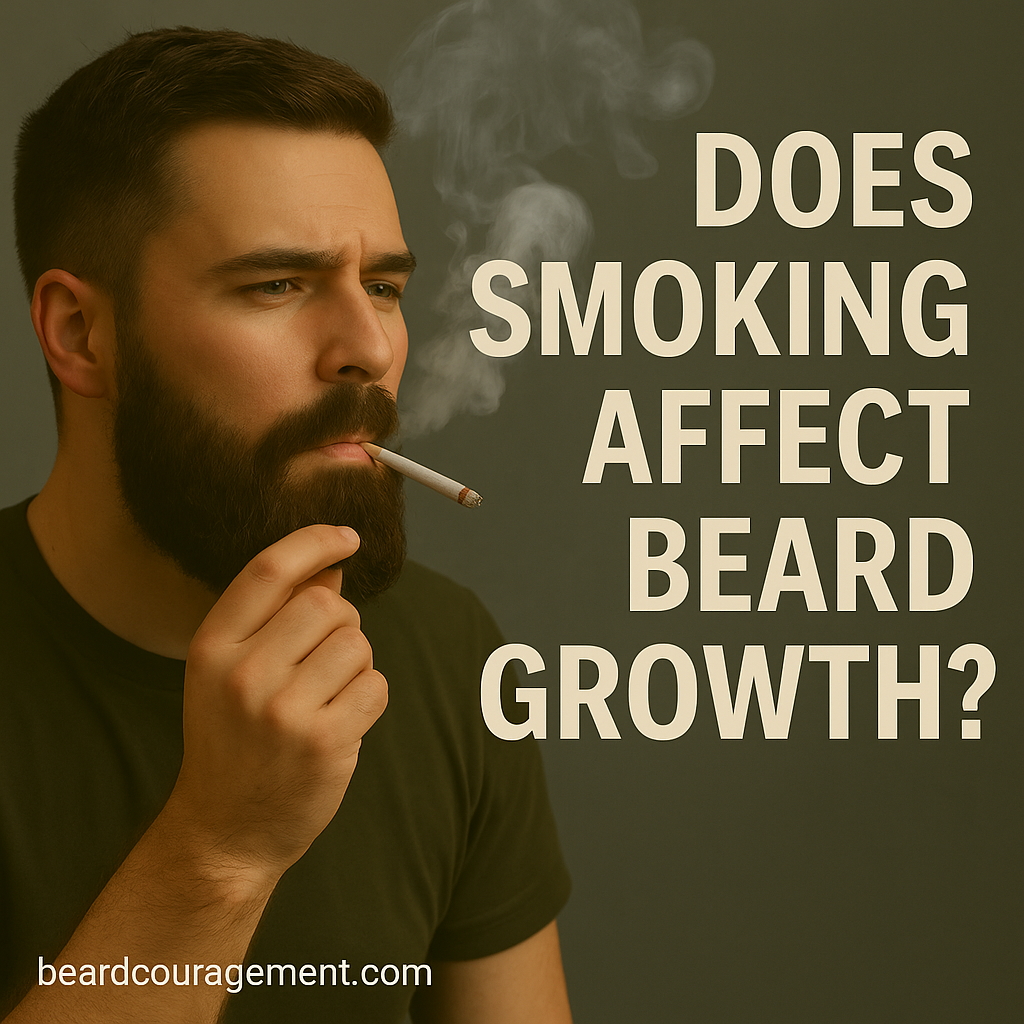
If you’ve been trying to grow a thicker beard but notice slow progress or uneven patches, your lifestyle habits might be to blame — and smoking is one of the biggest culprits. While genetics largely determine your beard growth, smoking can negatively impact the health of your hair follicles, blood flow, and hormones, all of which play a vital role in growing a full, healthy beard.
How Smoking Affects Hair Follicles
Your beard grows from hair follicles that depend on oxygen and nutrient-rich blood to thrive. Smoking reduces oxygen levels in the bloodstream and restricts circulation, which limits the amount of nutrients that reach your follicles. Over time, this can weaken the roots, slow growth, and even lead to premature hair loss.
Cigarette smoke also contains toxins that damage collagen and elastin — proteins responsible for maintaining healthy skin. Without proper skin health, the environment for strong beard growth suffers.
Hormonal Impact on Beard Growth
Testosterone and dihydrotestosterone (DHT) are the two main hormones responsible for facial hair growth. Smoking can disrupt hormone balance by lowering testosterone levels and increasing stress hormones like cortisol. Reduced testosterone means slower, thinner, and patchier beard development.
Additionally, nicotine can constrict blood vessels, further limiting the delivery of essential hormones to the follicles. Even if your genetics favor strong beard growth, this hormonal disruption can make your beard appear less dense over time.
Smoking and Skin Health
Smoking doesn’t just affect the hair — it harms the skin underneath. Dryness, irritation, and premature wrinkles caused by smoking can create an unhealthy environment for beard growth. Damaged skin can clog pores, leading to ingrown hairs or follicle inflammation.
Healthy beard growth starts with healthy skin, and smoking makes it harder to maintain that foundation.
The Good News: It’s Reversible
If you quit smoking, your body begins repairing itself almost immediately. Blood circulation improves, oxygen levels rise, and the nutrients your follicles need start flowing again. Many former smokers notice improvements in both hair and beard health within months of quitting.
Pairing this with a consistent beard care routine — including proper exfoliation, hydration, and beard oil use — can accelerate recovery and improve growth density.
Final Thoughts
While smoking doesn’t directly stop beard growth overnight, its long-term effects on blood flow, hormones, and skin health can significantly reduce your beard’s potential. Quitting not only benefits your overall health but also gives your beard the best chance to grow thick, strong, and vibrant.
